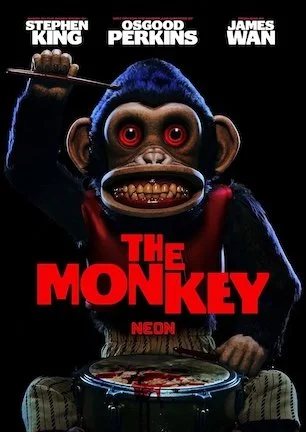Studio: Sony Pictures
Director: Andrew Traucki, David Nerlich
Writer: Andrew Traucki, David Nerlich
Producer: Michael Robertson
Stars: Diana Glenn, Maeve Dermody, Andy Rodoreda
Review Score:
Summary:
Three tourists desperately struggle to survive against a killer crocodile when their rowboat overturns in an Australian river.
Review:
“Black Water” didn’t register on my radar when it released directly to DVD in 2008. Zombies and “found footage” earn the most rolled eyes when it comes to redundancy. Yet horror is equally overloaded with films about killer aquatic animals, especially ones involving alligators and crocodiles, who are probably second only to sharks in overall prolificacy. How is anyone expected to keep these movies straight, much less get excited about “another” one?
Remember 1989’s battle of “Leviathan” versus “Deepstar Six” versus “The Abyss?” “Black Water” likewise blurs with Greg McLean’s “Rogue,” which follows a nearly identical plotline in the same location, as well as the second “Lake Placid” movie, both of which released in the prior year. See what I mean about distinguishing between similar films?
But “Black Water” made enough of a splash, pun intended, to become a pretty well-regarded little thriller. Fans and critics applauded its compact leanness, realistic scenario, and persistent tension. It kept coming up here and there throughout the years. With the follow-up film “Black Water: Abyss” bringing the title around again, I figured it was time to finally take the plunge, pun also intended.
“Black Water” comes with one of those “based on true events” tags that marketing departments love but viewers find frustrating when they can’t locate exact details on that supposed “true story.” By the way, not being able to find the “story” indicates how “true” it actually is. I don’t see what difference it even makes in this case. “Black Water’s” setup of three people stranded in a remote river where a killer croc swims is so indistinguishably simple, a true story isn’t going to be anything more involved than “stranded tourists fought off an animal” anyway.
There isn’t a lot going on with the characters before their ordeal begins. After giving their mum a goodbye hug following a Christmas visit, sisters Grace and Lee head off with Grace’s boyfriend Adam for an outdoor holiday across Australia. Grace quietly deals with a pregnancy she hasn’t told Adam about yet, though it doesn’t cause any particular consternation and only comes up casually without making a material difference down the line. Development doesn’t go any deeper as subplots are basically nonexistent. That said, the trio is a pleasant enough bunch to take a trip out on the water with, even if there isn’t much to them.
Dawdling predictably occupies a healthy chunk of Act One. They load the car. They visit an animal park. They drink at a bar. Once they hit the river with their guide Jim, the film sets up its Chekhov’s gun, establishes rules like how far the rowboat is from civilization, and drops in the first fake-out scare when a meddlesome paint can repeatedly thumps against the hull.
When action finally happens, and whenever it picks up throughout the rest of the runtime, it happens fast. Eyes have to stay closely dialed in to catch what goes where, who gets snagged on something, and so on.
The best thing going for “Black Water” is its comparative believability. Consider how many creature features tip over into cartoon camp by employing mutated monsters, secret experiments gone awry, alien entities, and other impossibilities. Not only is “Black Water’s” crocodile an ordinary animal, the circumstance Grace, Lee, and, Adam find themselves in is entirely routine. They’re not submerged in Mayan ruins facing off against a school of super sharks. They’re on an everyday fishing trip unexpectedly encountering nature in the wild. Realism makes the terror relatable because we can picture being in their predicament, even though 99.99% of us never have been and never will.
After overturning the boat around the 15-minute mark, the crocodile disappears for half an hour. This means suspense in that downtime comes from the group wrestling with “what if?” fears, tripping through treetops, flinching at gurgling water, and lightly bickering. I’m on your side if those kinds of thrills don’t seem entirely thrilling. “Black Water” requires investing in vicarious living or else you’re not going to sweat the same small stuff with everyone onscreen.
It shouldn’t be a spoiler to reveal someone dies at the movie’s midpoint. That’s usually when such things occur plus everyone surviving would make for a terribly anticlimactic film. A knee-jerk reaction might be to balk at a horror movie with so few victims as well as long spans of time between kills. What’s uniquely intriguing about how “Black Water” handles this though is that more import gets placed on the effect of that death rather than the death itself. Instead of focusing on grisly carnage, the camera directs attention toward the other two reacting in horror. Torturous anguish bubbles over again when they’re later forced to listen to the crocodile casually feasting on their loved one. In slashers or other subgenres with bigger body counts, emotional grief rarely receives acknowledgement because everyone immediately rushes to the next scene of slaughter. “Black Water’s” ability to pause lets a lone death deliver a deep impact.
Simplicity wields a double-edged katana however. “Black Water” entices viewers to engage strictly on a level of straight suspense, i.e. there’s no real narrative to follow or tricky details to keep up with. Nailbiters will thus get a lot more out of the movie than those of us who’d prefer to see more attention paid to a story. While “Black Water’s” croc fills its function as a menacing nemesis, bigger breadth to the fiction would widen its waters with thicker substance.
Review Score: 65







No matter where a personal opinion lands, you still have to tip your cap to an imaginative vision that stays true to pursuing its own path.